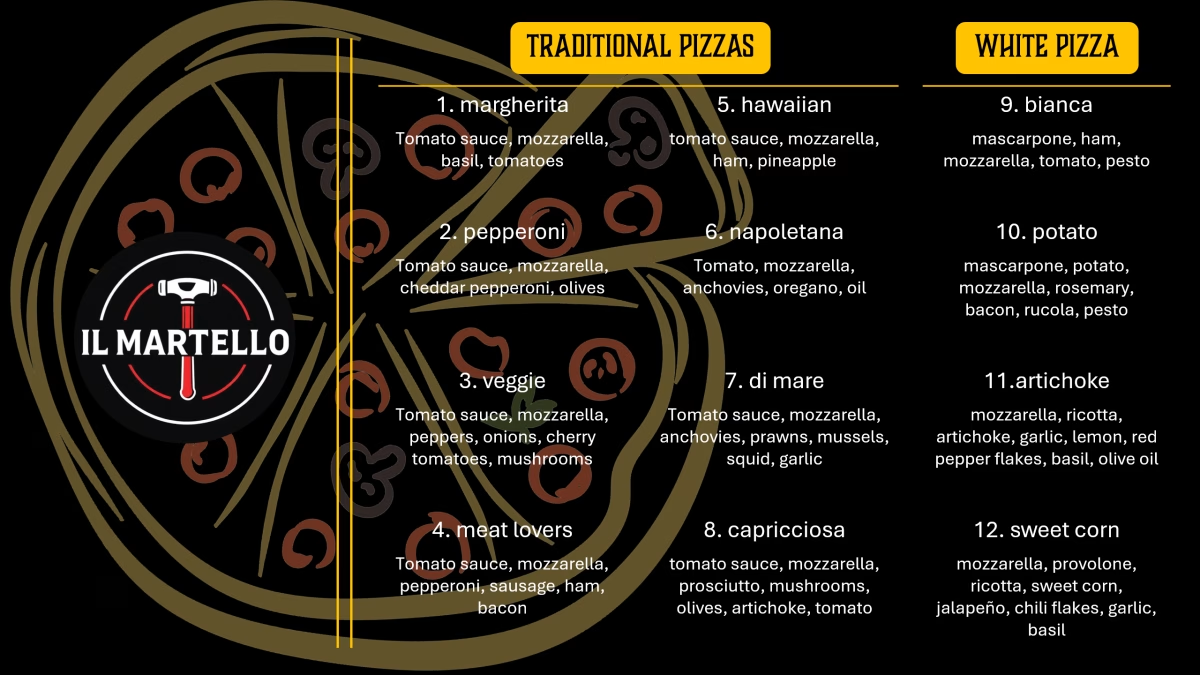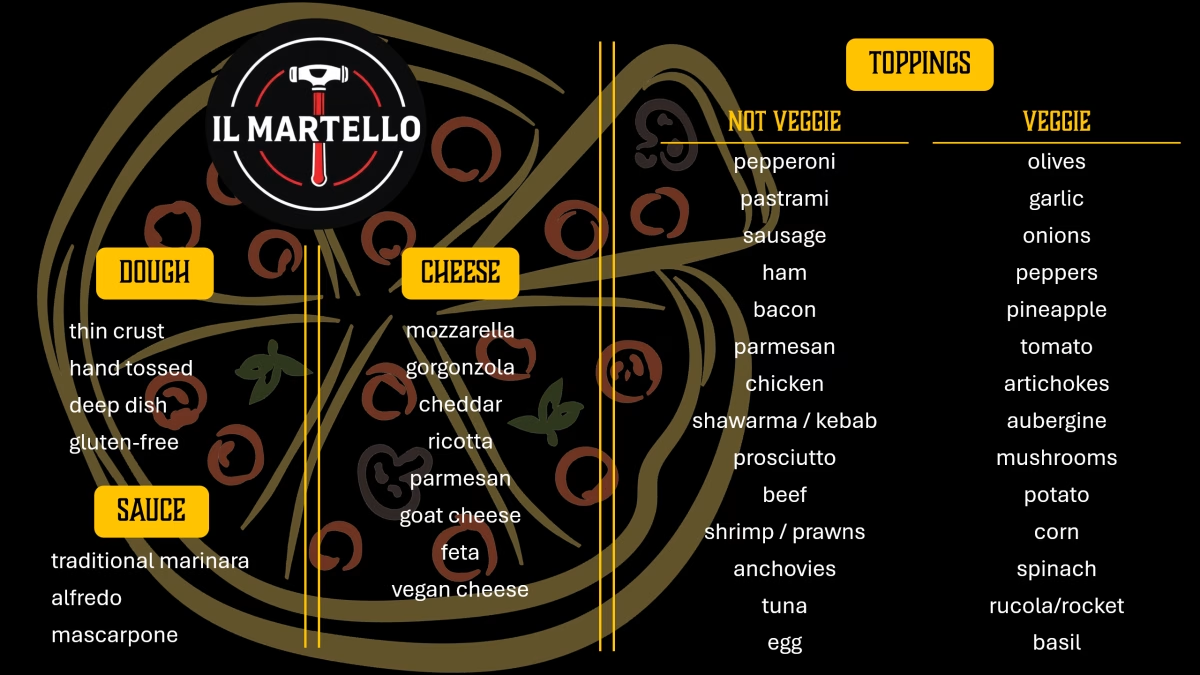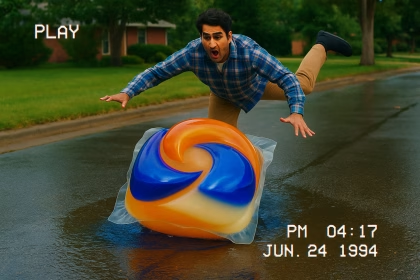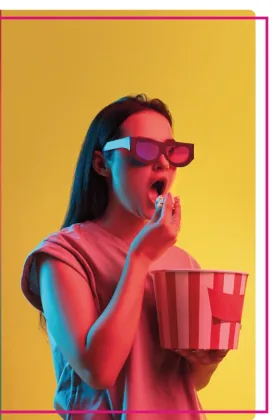We set-up an internal sample remote behavioral research study, using our remote data collection platform and had employees at iMotions participate so that you could see behind the scenes of conducting remote research. Employees could choose when and where to participate from their own computers using their own web cameras and microphones.
Table of Contents
Introduction
For this study, we created an imaginary pizza restaurant called Il Martello, “the hammer”, (our founder and CEO, Peter, refers to hammers a lot). We imagined that our imaginary pizza company wanted to test their menus and their video advertisements.
- Menus: they were interested in figuring out whether to go with a “build your own pizza” model or choosing from a predetermined list of pizzas.
- Video advertisements: they were interested in figuring out which ad was engaging and to whom it was engaging.
We created two menus and two video advertisements, so that the study could be set-up in an AB Testing format. The menus and video advertisements are shown below in the Stimuli Section.
This Remote Data Collection (RDC) study was designed to showcase the potential of combining surveys with remote behavior research tools such as:
- web camera based eye tracking
- facial expression analysis
- voice analysis
- web camera based respiration
Stimuli
Surveys
Participants completed three surveys. These were built in iMotions with the Advanced Study Builder that is part of iMotions Core.
Demographics
Questions about gender, where they grew up, whether people lived with other adults or children and how busy they were during a typical week.
Appetite
We asked participants to rate their current level of hunger and report the last time they ate.
Pizza Preferences
Survey included questions about toppings, how often people eat pizza, and whether they order takeout. We also asked about food allergies and intolerances.
Menus
The menus served as an example of static stimuli. Both menus were presented to all study participants.


Video Advertisements
The video ads were an example of dynamic stimuli.
Ad 1: One ad included scenes of people eating pizza in groups with the narrator discussing the social aspect of pizza. It shows groups of people in different contexts sharing pizza and generally have positive facial expressions.
Ad 2: The other ad focused on convenience and displayed scenes in which food was being prepared and scenes showing people doing everyday errands (grocery shopping, looking through a fridge, walking up stairs, and cars in traffic) . These scenes only showed individuals and none of them seem particularly thrilled.
Explore The Sample Study
From here, you can navigate to see examples of insights from this study or go behind the scenes to see how the study was built or how the analysis was conducted.
- Insight Examples
- Behind the Scenes: Building the Study
- Behind the Scenes: Analyzing the Study (coming soon)

Teaching with iMotions Online?
You can use our sample study stimuli to run this study in your classroom!










